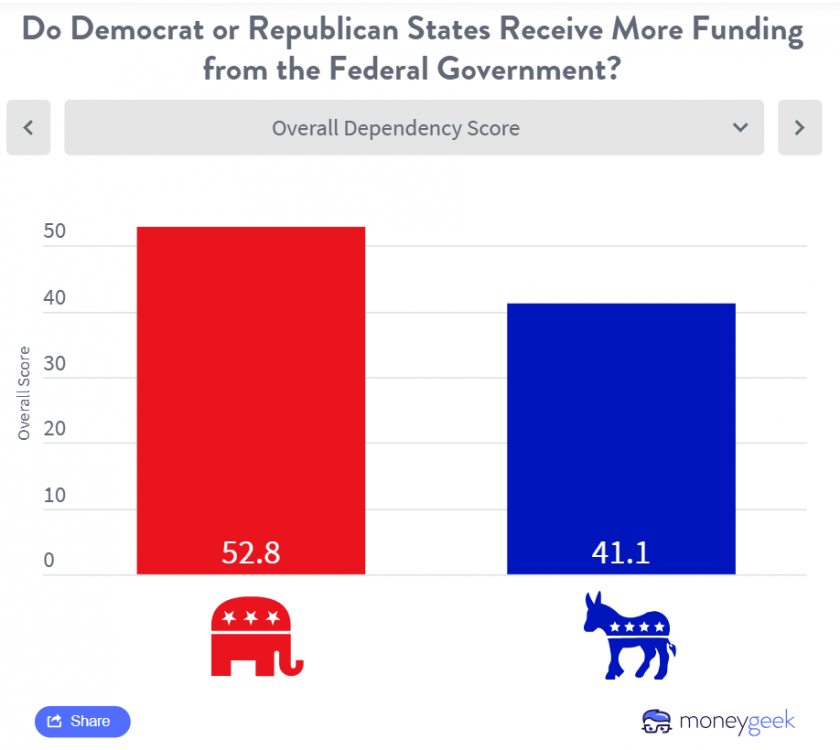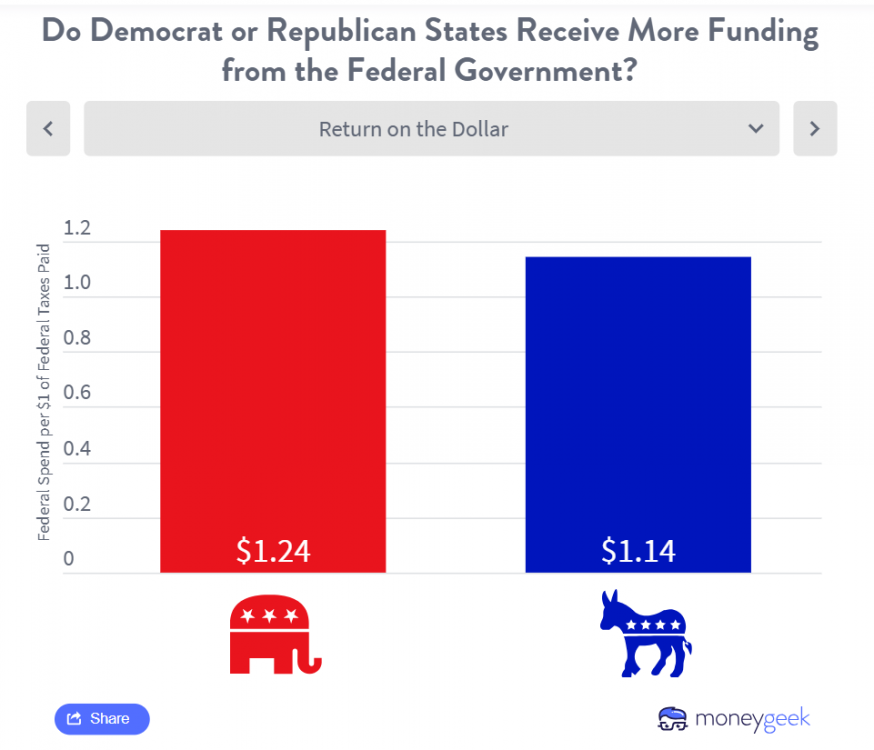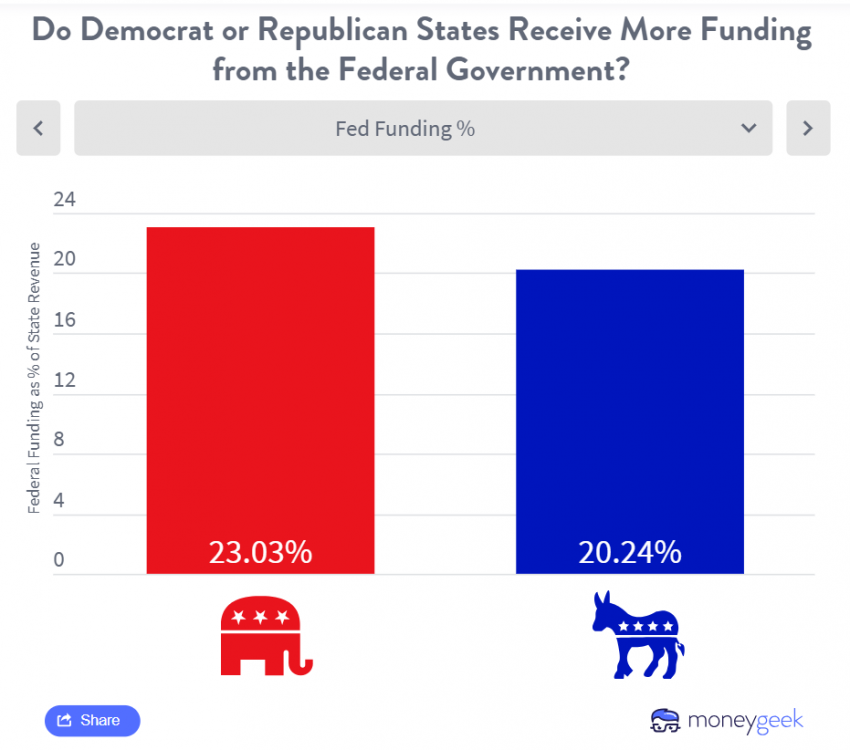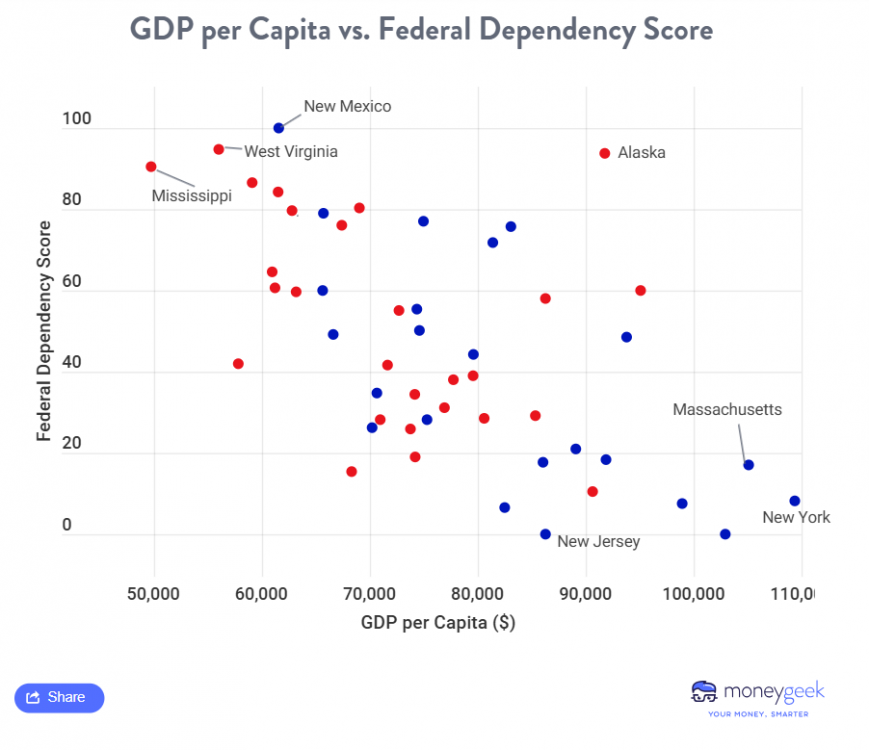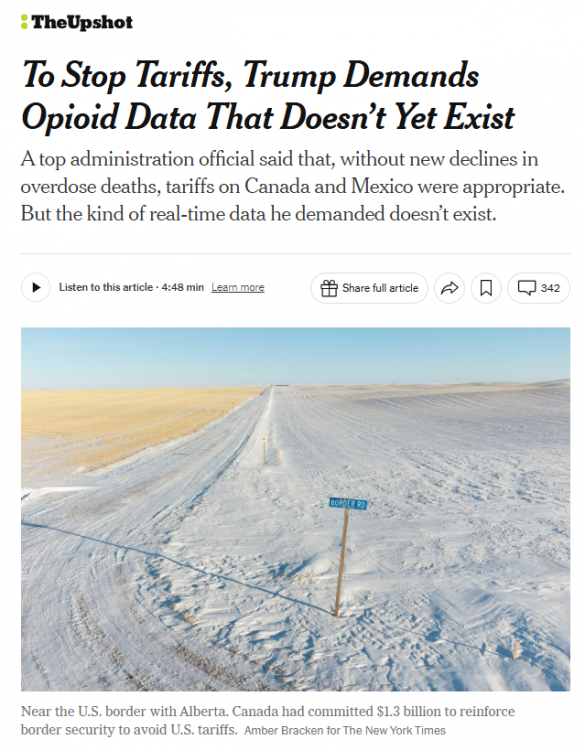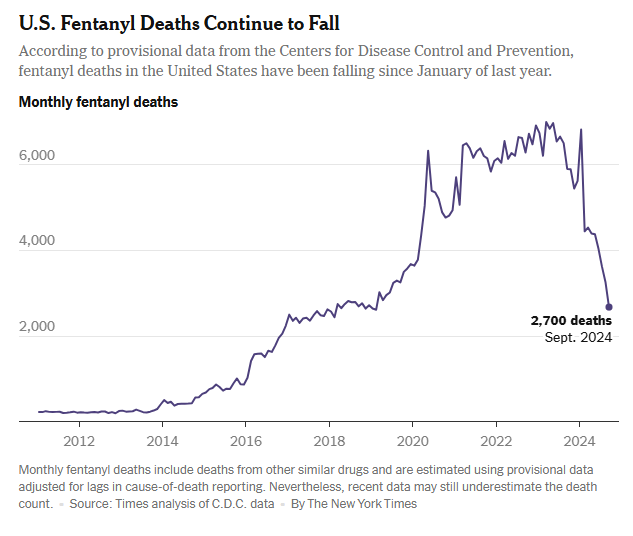-
Posts
15024 -
Joined
-
Days Won
8
Content Type
Profiles
Forums
Store
Downloads
Recruiting - 2020
2019-2020 Football Season
Football
Entertainment
Sports
News and Business
Cloak Room
Transfer Portal
Recruiting
Events
Everything posted by bolverk
-

We should change the time in the middle of the day
bolverk replied to Celery Man's topic in Daily Texan
Just stick with standard time. It's what our circadian rhythms are best suited to, according to all the studies. -
Wordle 1,359 4/6 ⬛⬛⬛⬛🟨 ⬛⬛⬛🟩🟨 🟩🟩⬛🟩⬛ 🟩🟩🟩🟩🟩 Connections Puzzle #637 🟩🟩🟩🟩 🟦🟦🟦🟦 🟨🟨🟨🟨 🟪🟪🟪🟪 🙂 Daily Quordle 1140 7️⃣4️⃣ 5️⃣8️⃣ m-w.com/games/quordle/ 🟩⬜⬜🟨⬜ ⬜⬜🟨🟨⬜ ⬜🟨⬜⬜⬜ ⬜🟨⬜⬜🟨 ⬜⬜⬜⬜⬜ 🟨⬜⬜⬜⬜ 🟨⬜⬜⬜🟩 🟩🟩🟩🟩🟩 ⬜⬜⬜⬜⬜ ⬛⬛⬛⬛⬛ 🟩🟨⬜⬜🟩 ⬛⬛⬛⬛⬛ 🟩🟩🟩🟩🟩 ⬛⬛⬛⬛⬛ ⬜⬜⬜⬜🟨 ⬜⬜🟨⬜🟨 ⬜⬜⬜⬜🟩 ⬜⬜⬜⬜🟨 ⬜⬜⬜⬜⬜ ⬜⬜⬜⬜⬜ ⬜⬜🟩⬜⬜ ⬜⬜🟨🟩⬜ 🟩🟩🟩🟩🟩 ⬜🟨🟨🟨⬜ ⬛⬛⬛⬛⬛ ⬜⬜⬜⬜⬜ ⬛⬛⬛⬛⬛ ⬜⬜⬜⬜⬜ ⬛⬛⬛⬛⬛ 🟩🟩🟩🟩🟩
-
That cold open was fantastic. Funny as hell.
-
Oh, you're a troll. Goodbye.
-
-
Support for progressive income tax rates, for one.
-
This is an outright false statement. There is, in fact, a strong correlation supported by the data. Now, you can very well contend that correlation does not equal causation, as you and others rightly point out that it's a difficult apples-to-apples comparison due to the presence of federal assets (e.g., national parks, ports/bases/ports, CBP, and so on). Still, if grounded in facts, that could be an interesting and enlightening topic for discussion by zeroing in on federal programs targeting individuals needing some sort of financial assistance. Given that Blue states tend to have higher median household incomes than Red states, it's not outrageous to assume that citizens of those states would require less help and yet pay more in federal income taxes. But, of course, conducting that analysis should also include consideration of the cost of living. By and large, however, I'd agree from the discussion above that breaking it down by county would be a more precise measure of the transfer of dollars. You're welcome to peruse the data on tax dollar flows from states to DC and then back again to the states. This briefer is pretty well sourced and very recent (Feb 2025): https://www.moneygeek.com/resources/states-most-reliant-on-federal-government/
-
Are there even any walls left in Gaza where posters could be plastered?
-
NOAA Said to Be Planning to Shrink Staff by 20 Percent Together with recent firings and resignations, the new cuts could hamper the National Weather Service’s ability to produce lifesaving forecasts, scientists say. The National Oceanic and Atmospheric Administration, the nation’s premier agency for weather and climate science, has been told by the Trump administration to prepare to lose another 1,000 workers, raising concerns that NOAA’s lifesaving forecasts might be hindered as hurricane and disaster season approaches. The new dismissals would come in addition to the roughly 1,300 NOAA staff members who have already resigned or been laid off in recent weeks. The moves have alarmed scientists, meteorologists and others at the agency, which includes the National Weather Service. Some activities, including the launching of weather balloons, have already been suspended because of staffing shortages. Together, the reductions would represent nearly 20 percent of NOAA’s approximately 13,000-member work force. Managers within NOAA have been told to draw up proposals for layoffs and reorganizations to trim the agency’s staff by at least 1,000 people, according to eight people who requested anonymity because they weren’t authorized to discuss the plans publicly. The effort is part of the “reductions in force” that President Trump required as part of an executive order last month, as he and the billionaire Elon Musk make rapid, large-scale cuts to the federal bureaucracy. NOAA managers have been asked to complete their proposals by Tuesday, one of the people said. The proposals are likely to involve eliminating some of the agency’s functions, though managers have received little guidance about which programs to prioritize for cutting. Representatives for NOAA didn’t immediately respond to a request for comment on Saturday. The recent employee departures have already affected NOAA’s operations in many realms: predicting hurricanes and tornadoes, overseeing fisheries and endangered species, monitoring the changes that humans are bringing about to Earth’s climate and ecosystems. NOAA, a $6.8 billion agency within the Commerce Department, has been singled out for cuts by some of Mr. Trump’s allies. Project 2025, the policy blueprint published by the Heritage Foundation that is echoed in many of the Trump administration’s actions, calls NOAA “one of the main drivers of the climate change alarm industry.” The document calls for the agency to be dismantled and some of its functions eliminated or privatized. Organizations including the American Geophysical Union, which represents earth and space researchers, have called on Congress to oppose the administration’s actions. “Undermining NOAA’s operations could risk the safety of millions of Americans and destabilize countless industries, from farming and fisheries to energy and finance, threatening job losses and economic downturn,” the organizations wrote in a letter. They pointed out that, as the planet warms, extreme weather is becoming more frequent and more damaging, making NOAA’s work more critical. The idea that private companies could replace NOAA in forecasting the weather is a “gross misunderstanding,” said Keith Seitter, a distinguished visiting lecturer in meteorology and climate science at College of the Holy Cross in Worcester, Mass. “The app on your phone or what you’re watching on TV, those are private-sector companies, but those private-sector companies depend critically on NOAA for all the information that they’re using to create those forecasts,” Dr. Seitter said. “It’s a coordinated effort.” Employees who are still working at NOAA describe feelings of deep anxiety. Their colleagues have been let go unannounced, meaning they have no idea who might simply not show up for work. With their government-issued credit cards frozen, they can’t buy supplies for research projects or travel to retrieve instruments that have been installed at sea. They are scrambling to back up their scientific data, fearful that programs might be shuttered or leases on buildings canceled. At least three NOAA facilities were on a list of federal properties that the Trump administration flagged last week for possible sale. The list was later taken down, replaced by a web page that said a new inventory was “coming soon.” The firings of scientists at NOAA and other agencies, plus potential cuts to federal funding for research at universities and hospitals, have fed worries that the administration is undermining the foundations of America’s modern scientific leadership. On Friday, crowds gathered at “Stand Up for Science” rallies in cities around the nation including Austin, Birmingham, Ala., Boston, Chicago, Denver, Nashville and Washington. “This is the most challenging moment I can recall for science,” Michael Mann, a climate researcher at the University of Pennsylvania, told the rally in Washington, where the crowd peaked at 5,000 people, according to the organizers. “Science is under siege,” Dr. Mann said. The National Weather Service has faced budget cuts, hiring freezes and calls for privatization before, Dr. Seitter said. “But nothing where you’ve just arbitrarily whacked whole chunks out of the work force, or potentially taken away whole chunks of budget that support mission-critical things,” he said.
-

Elon Musk: Nazi traitor piece of shit [Confirmed]
bolverk replied to MaybeACoordinator's topic in Daily Texan
NOAA Said to Be Planning to Shrink Staff by 20 Percent Together with recent firings and resignations, the new cuts could hamper the National Weather Service’s ability to produce lifesaving forecasts, scientists say. The National Oceanic and Atmospheric Administration, the nation’s premier agency for weather and climate science, has been told by the Trump administration to prepare to lose another 1,000 workers, raising concerns that NOAA’s lifesaving forecasts might be hindered as hurricane and disaster season approaches. The new dismissals would come in addition to the roughly 1,300 NOAA staff members who have already resigned or been laid off in recent weeks. The moves have alarmed scientists, meteorologists and others at the agency, which includes the National Weather Service. Some activities, including the launching of weather balloons, have already been suspended because of staffing shortages. Together, the reductions would represent nearly 20 percent of NOAA’s approximately 13,000-member work force. Managers within NOAA have been told to draw up proposals for layoffs and reorganizations to trim the agency’s staff by at least 1,000 people, according to eight people who requested anonymity because they weren’t authorized to discuss the plans publicly. The effort is part of the “reductions in force” that President Trump required as part of an executive order last month, as he and the billionaire Elon Musk make rapid, large-scale cuts to the federal bureaucracy. NOAA managers have been asked to complete their proposals by Tuesday, one of the people said. The proposals are likely to involve eliminating some of the agency’s functions, though managers have received little guidance about which programs to prioritize for cutting. Representatives for NOAA didn’t immediately respond to a request for comment on Saturday. The recent employee departures have already affected NOAA’s operations in many realms: predicting hurricanes and tornadoes, overseeing fisheries and endangered species, monitoring the changes that humans are bringing about to Earth’s climate and ecosystems. NOAA, a $6.8 billion agency within the Commerce Department, has been singled out for cuts by some of Mr. Trump’s allies. Project 2025, the policy blueprint published by the Heritage Foundation that is echoed in many of the Trump administration’s actions, calls NOAA “one of the main drivers of the climate change alarm industry.” The document calls for the agency to be dismantled and some of its functions eliminated or privatized. Organizations including the American Geophysical Union, which represents earth and space researchers, have called on Congress to oppose the administration’s actions. “Undermining NOAA’s operations could risk the safety of millions of Americans and destabilize countless industries, from farming and fisheries to energy and finance, threatening job losses and economic downturn,” the organizations wrote in a letter. They pointed out that, as the planet warms, extreme weather is becoming more frequent and more damaging, making NOAA’s work more critical. The idea that private companies could replace NOAA in forecasting the weather is a “gross misunderstanding,” said Keith Seitter, a distinguished visiting lecturer in meteorology and climate science at College of the Holy Cross in Worcester, Mass. “The app on your phone or what you’re watching on TV, those are private-sector companies, but those private-sector companies depend critically on NOAA for all the information that they’re using to create those forecasts,” Dr. Seitter said. “It’s a coordinated effort.” Employees who are still working at NOAA describe feelings of deep anxiety. Their colleagues have been let go unannounced, meaning they have no idea who might simply not show up for work. With their government-issued credit cards frozen, they can’t buy supplies for research projects or travel to retrieve instruments that have been installed at sea. They are scrambling to back up their scientific data, fearful that programs might be shuttered or leases on buildings canceled. At least three NOAA facilities were on a list of federal properties that the Trump administration flagged last week for possible sale. The list was later taken down, replaced by a web page that said a new inventory was “coming soon.” The firings of scientists at NOAA and other agencies, plus potential cuts to federal funding for research at universities and hospitals, have fed worries that the administration is undermining the foundations of America’s modern scientific leadership. On Friday, crowds gathered at “Stand Up for Science” rallies in cities around the nation including Austin, Birmingham, Ala., Boston, Chicago, Denver, Nashville and Washington. “This is the most challenging moment I can recall for science,” Michael Mann, a climate researcher at the University of Pennsylvania, told the rally in Washington, where the crowd peaked at 5,000 people, according to the organizers. “Science is under siege,” Dr. Mann said. The National Weather Service has faced budget cuts, hiring freezes and calls for privatization before, Dr. Seitter said. “But nothing where you’ve just arbitrarily whacked whole chunks out of the work force, or potentially taken away whole chunks of budget that support mission-critical things,” he said. -
Summary of the latest from the Institute for the Study of War. Kremlin rejects possibility of compromise and refuses to discuss ceasefire – ISW Russia has rejected the possibility of any concessions in future peace talks regarding the war in Ukraine. The Kremlin has stated that it will not make compromises, denied the possibility of deploying peacekeepers in Ukraine and dismissed the prospect of a ceasefire through talks. Source: Institute for the Study of War (ISW) Details: During a visit to the Moscow branch of the Defenders of the Fatherland Foundation on 6 March, Russia's ruler Vladimir Putin emphasised that Russia will not "give in to anyone" and intends to achieve peace conditions that will provide it with long-term guarantees. Quote: "Putin has also declared 2025 the 'Year of the Defender of the Fatherland' – underlining Putin's efforts to prioritise militarising Russian society and rallying support behind Russia's war effort in Ukraine in 2025. Putin stated that Russia 'will not give up' its 'own' territory in future peace negotiations – likely referring to illegally annexed territory in occupied Ukraine." Details: Russian Foreign Minister Sergei Lavrov stated at a press conference that Moscow will not consider any initiatives to deploy European peacekeeping forces in Ukraine. According to Lavrov, such actions would be tantamount to the deployment of NATO forces and therefore Russia would consider this move to be direct involvement of the Alliance in the war. Russian Foreign Ministry spokeswoman Maria Zakharova also stressed that any proposals that might give Ukraine a "respite" on the battlefield are unacceptable to the Kremlin. Furthermore, Lavrov emphasised that Russia will insist on taking into account the so-called "root causes" of the war, which, as he claims, include halting NATO expansion and security guarantees for Russia. He claimed that US President Donald Trump understands these demands, whereas European countries are ignoring them. Quote: "Russian officials often invoke the concept of 'root causes' to allude to their demands for NATO to abandon its open-door policy and to blame the West and Ukraine for Putin's decision to invade Ukraine." To quote the ISW's Key Takeaways on 6 March: Russian leader Vladimir Putin and other Kremlin officials explicitly rejected making any concessions in future peace negotiations or accepting any US, European, or Ukrainian peace proposals and the Russian Ministry of Foreign Affairs rejected the possibility of a negotiated ceasefire on 6 March. Russian officials will likely take advantage of the suspension of US military aid and intelligence sharing with Ukraine to spread a longstanding Russian information operation meant to falsely portray Russian victory as inevitable. The Kremlin welcomed a Trump administration official's recent comments mischaracterising Russia's illegal and unprovoked invasion of Ukraine as a "proxy war", and Russian media portrayed the statement as an admission that the United States is a participant in the war. US and Ukrainian delegations will conduct bilateral meetings in Saudi Arabia next week. Ukrainian opposition politicians rejected the possibility of holding elections in Ukraine before the end of the war. European countries continue to announce new military assistance packages and other measures to support the Ukrainian military. Ukrainian forces recently advanced on the Pokrovsk front and Russian forces recently advanced on the Kupiansk, Borova, Siversk, Pokrovsk and Kurakhove fronts. Russian leader Vladimir Putin attempted to assuage Russian fears about conscripts going to war amid continued reports that Russian military units are forcing conscripts to sign contracts with the Russian Ministry of Defence (MoD).
-
Summary of the latest from the Institute for the Study of War. Kremlin rejects possibility of compromise and refuses to discuss ceasefire – ISW Russia has rejected the possibility of any concessions in future peace talks regarding the war in Ukraine. The Kremlin has stated that it will not make compromises, denied the possibility of deploying peacekeepers in Ukraine and dismissed the prospect of a ceasefire through talks. Source: Institute for the Study of War (ISW) Details: During a visit to the Moscow branch of the Defenders of the Fatherland Foundation on 6 March, Russia's ruler Vladimir Putin emphasised that Russia will not "give in to anyone" and intends to achieve peace conditions that will provide it with long-term guarantees. Quote: "Putin has also declared 2025 the 'Year of the Defender of the Fatherland' – underlining Putin's efforts to prioritise militarising Russian society and rallying support behind Russia's war effort in Ukraine in 2025. Putin stated that Russia 'will not give up' its 'own' territory in future peace negotiations – likely referring to illegally annexed territory in occupied Ukraine." Details: Russian Foreign Minister Sergei Lavrov stated at a press conference that Moscow will not consider any initiatives to deploy European peacekeeping forces in Ukraine. According to Lavrov, such actions would be tantamount to the deployment of NATO forces and therefore Russia would consider this move to be direct involvement of the Alliance in the war. Russian Foreign Ministry spokeswoman Maria Zakharova also stressed that any proposals that might give Ukraine a "respite" on the battlefield are unacceptable to the Kremlin. Furthermore, Lavrov emphasised that Russia will insist on taking into account the so-called "root causes" of the war, which, as he claims, include halting NATO expansion and security guarantees for Russia. He claimed that US President Donald Trump understands these demands, whereas European countries are ignoring them. Quote: "Russian officials often invoke the concept of 'root causes' to allude to their demands for NATO to abandon its open-door policy and to blame the West and Ukraine for Putin's decision to invade Ukraine." To quote the ISW's Key Takeaways on 6 March: Russian leader Vladimir Putin and other Kremlin officials explicitly rejected making any concessions in future peace negotiations or accepting any US, European, or Ukrainian peace proposals and the Russian Ministry of Foreign Affairs rejected the possibility of a negotiated ceasefire on 6 March. Russian officials will likely take advantage of the suspension of US military aid and intelligence sharing with Ukraine to spread a longstanding Russian information operation meant to falsely portray Russian victory as inevitable. The Kremlin welcomed a Trump administration official's recent comments mischaracterising Russia's illegal and unprovoked invasion of Ukraine as a "proxy war", and Russian media portrayed the statement as an admission that the United States is a participant in the war. US and Ukrainian delegations will conduct bilateral meetings in Saudi Arabia next week. Ukrainian opposition politicians rejected the possibility of holding elections in Ukraine before the end of the war. European countries continue to announce new military assistance packages and other measures to support the Ukrainian military. Ukrainian forces recently advanced on the Pokrovsk front and Russian forces recently advanced on the Kupiansk, Borova, Siversk, Pokrovsk and Kurakhove fronts. Russian leader Vladimir Putin attempted to assuage Russian fears about conscripts going to war amid continued reports that Russian military units are forcing conscripts to sign contracts with the Russian Ministry of Defence (MoD).
-
Yeah, I don't think it's necessarily done with calculated intent but, instead, maybe a learned trait that's apparently worked out his way his whole life. Like you said, he's got a narcissistic personality disorder, and this is the way he's learned to "cope" by manipulating people. Of course, on the other hand, the contradictions could well just be a sign that he's an idiot who believes and repeats the last thing someone said to him. But I guess that's kind of the point. No one knows what he truly believes/thinks or exactly what he's going to do at any moment on a whim, and that unpredictability makes everyone feel disoriented and off-balance until he suddenly plows ahead after whatever decision process it actually is. It's perhaps not some grand revelation, but it does give me something to point to when arguing with my bewildered idiot buddy who voted for Trump and is now "alarmed," as he put it last night during a long discussion.
-
I don't think I've read a similar analysis about Trump's rhetoric with this particular point, but when put in this way, the self-contradictions make sense. ‘You Can’t Pin Him Down’: Trump’s Contradictions Are His Ultimate Cover President Trump’s shifting positions and outright lies have presented the American public with dueling narratives at every turn. What does President Trump really believe? Does he want to run for a third term, or is that just a joke? Does he intend to seize control of Gaza and expel millions of Palestinians, or is that just a suggestion? Is Black History Month a waste of time and money, or worth a lavish celebration at the White House? Anyone looking for definitive answers will have a hard time finding them. Since storming back into office, Mr. Trump has used a dizzying rhetorical tactic of shifting positions like quicksand, muddying his messages and contradicting himself, sometimes in the same day. The inconsistencies have presented the American public with dueling narratives at every turn, allowing people to pick and choose what they want to believe about the president’s intentions. Mr. Trump has long dealt in distortions and lies, including in his first term. But as he executes a much more aggressive agenda at home and abroad, his contradictions have become more brazen and more pronounced. “He says so much, you can’t really pin him down,” said Julian E. Zelizer, a Princeton history professor and editor of a book of essays about Mr. Trump’s first term. “The point isn’t to have a contradiction, the point is to have cover.” “The reality of our modern information world is that you can pick and choose what you want to believe,” Mr. Zelizer added. “He instinctively knows that.” Within hours of taking office, Mr. Trump pardoned Jan. 6 rioters who assaulted Capitol Police officers, a move that clashed with his professed support for law enforcement. He spent his first weeks disparaging diversity, equity and inclusion policies as “harmful” and blamed diversity efforts at the Federal Aviation Administration for a deadly plane crash over the Potomac River. But just hours after the Jan. 29 crash, he backtracked. “We want the most competent people,” he said. “We don’t care what race they are.” Mr. Trump has eviscerated federal programs aimed at combating inequality in America and his Defense Department announced that the military would no longer “use official resources” to mark Black History Month. Mr. Trump then marked the occasion in a formal ceremony in the White House. His foreign policy pronouncements are equally baffling. Last month, after making a stunning announcement that the United States would seek to seize the Gaza Strip, permanently displace the Palestinian population and rebuild the seaside enclave as the “Riviera of the Middle East,” Mr. Trump changed his proposal several times over two weeks, before saying it was merely a recommendation. Earlier this week, during an address to Congress, he invited Greenland to choose to be owned by the United States. “We strongly support your right to determine your own future, and if you choose, we welcome you into the United States of America,” he said. Moments later, he suggested it may not be a choice at all. “One way or the other, we’re going to get it,” he said. On the matter of Ukraine, Mr. Trump in a social media post called the country’s president, Volodymyr Zelensky, a “dictator without elections.” Later, when pressed on whether he actually believed that, Mr. Trump said: “Did I say that? I can’t believe I said that.” White House officials argue that especially on foreign policy matters, Mr. Trump is showing his skill as a tough negotiator whose messages adjust to the fluidity of serious situations. An aide, speaking on the condition of anonymity, said that Mr. Trump’s ambiguity about the situations in the Middle East and Ukraine had pushed both regions closer to peace. “The American public has ample opportunity to listen to the words of President Trump directly when he speaks to the press and directly to the American people on a near daily basis as the most accessible and transparent president in American history,” Karoline Leavitt, the White House press secretary, said in a statement, adding that Americans “recognize the beauty of the art of the deal.” Throughout his career as a businessman and a politician, Mr. Trump became known as much for deal-making as he was for perfecting contradictions. Tony Schwartz, the ghostwriter of Mr. Trump’s book “The Art of the Deal,” has said the president has one goal. “His aim is never accuracy,” Mr. Schwartz wrote in an opinion essay during Mr. Trump’s first term, “it’s domination.” Mr. Trump has boasted about his meandering speaking style, which he calls the “weave,” and he often muses about things — like whether he should be granted a constitutionally prohibited third term — with a wink and a nod. But experts say the dissonance can become dangerous. “Once you undermine consistency, the shared sense of reality, you’re undermining the basis of democracy,” said Jason Stanley, a Yale professor who has written books about propaganda and the erasure of history. “If there’s no shared sense of reality, we can’t collectively make decisions. So the only decision maker will be the disrupter in chief.” Mr. Stanley said Mr. Trump’s contradictions boil down to a simple truth. “If you’re constantly contradicting yourself,” he said, “you’re constantly lying.”
-
Wordle 1,358 4/6 ⬛🟨🟨⬛🟨 🟨🟩⬛🟩⬛ ⬛🟩🟩🟩🟩 🟩🟩🟩🟩🟩 Connections Puzzle #636 🟨🟨🟨🟨 🟦🟦🟦🟦 🟪🟪🟪🟪 🟩🟩🟩🟩 🙂 Daily Quordle 1139 6️⃣4️⃣ 7️⃣8️⃣ m-w.com/games/quordle/ ⬜🟨🟨⬜⬜ 🟨⬜🟨⬜⬜ 🟨⬜⬜⬜⬜ ⬜🟨⬜⬜🟩 ⬜⬜⬜⬜⬜ ⬜⬜⬜🟨⬜ ⬜🟩⬜⬜⬜ 🟩🟩🟩🟩🟩 🟨⬜⬜⬜⬜ ⬛⬛⬛⬛⬛ 🟩🟩🟩🟩🟩 ⬛⬛⬛⬛⬛ 🟨🟨⬜⬜🟨 ⬜🟨⬜⬜⬜ ⬜⬜⬜⬜🟨 ⬜⬜⬜⬜🟨 ⬜⬜⬜⬜⬜ ⬜⬜⬜⬜🟩 ⬜⬜⬜🟩🟨 ⬜⬜⬜⬜🟨 🟨🟩🟩🟩⬜ 🟨⬜🟨⬜⬜ 🟩⬜🟨⬜⬜ ⬜⬜🟨⬜🟨 🟩🟩🟩🟩🟩 ⬜⬜🟨⬜🟨 ⬛⬛⬛⬛⬛ 🟩🟩🟩🟩🟩
-

Since English is the now the official language of the US...
bolverk replied to High Plains Drifter's topic in Cloak Room
Mea culpa. Missed it. As amends, I submit a handful of quick ones: Saint Mark Body of Christ Saint Angel City of Of the River County of Shoe -

Since English is the now the official language of the US...
bolverk replied to High Plains Drifter's topic in Cloak Room
You forgot a big one: TEXAS -
Hey! When's Russia going to hold free and fair elections?
-
Supposed to be a press conference with updates at some point this afternoon. https://www.nbcdfw.com/news/national-international/gene-hackman-death-investigation-latest/3786571/
-
We here all know the fentanyl excuse for the tariffs on Canada is a lie, but I'm posting this just as added information when you find yourself in an argument with that idiot in your life. https://www.nytimes.com/2025/03/04/upshot/trump-fentanyl-tariffs.html Free link: https://archive.is/IDE0h
-
Glad to see it remains confined to those same counties. I doubt that holds up, but since I live in one of the neighboring counties, the longer it takes to get here, the better (maybe?). Dallam 5 Dawson 9 Ector 2 Gaines 137 Lubbock 3 Lynn 2 Martin 3 Terry 29 Yoakum 8 Total 198
-
I didn't bother to look up the value but it did cross my mind to check. A side note, and back to Brisket's point, Street View allows you to go back in time by clicking the Month/Year thingy to see how it's changed over time. They offer up several shots of that empty parking lot, with it only occasionally having a car or two in it (I believe you have to go back to 2021 before you see a single one). But, back to *your* point, someone's obviously land banking by waiting for adjacent properties to come onto the market for acquisition and for assembling a larger site for future development and willing to offer up cheap rent right now just to keep it going derelict like those buildings on that upper block of Congress. Kind of a "duh" statement, I know.
-
Football ... Basketball ... Baseball ... Other Sports ... Futbol ... 🤫995🤫 ... Gambling ... Movies & TV ... Music ... Hobbies ... Lulz ... Food & Travel ... Daily Texan ... Business and Markets ... Cloak Room ... Help ... For Sale ... Board Discussion ... Subscribe!... Donate!... Advertise... COOKIE MONSTER!





